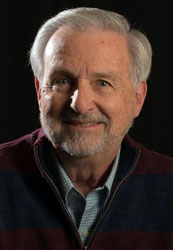by Cavin Harper
Sweet dreams till sunbeams find you,
Sweet dreams that leave all worries behind you.
But in your dreams, whatever they be,
Dream a little dream of me.
Dream a Little Dream of Me
Cass Elliot – 1968
Like Mama Cass Elliot, everyone wants someone who cares enough that we are in some meaningful way part of their dreams. Grandparents want that too. Come on, admit it. You have those “dream-a-little-dream-of-me” moments when it comes to your grandchildren, right?
You relish being adored by your grandchildren. You dream about them coming to your house and not wanting to leave. You want your time together to be so good that you dream of being together again.
I know I do. I love the enthusiastic welcome of a grandchild yelling, “Yay! Nana and Papa are here!” or one of them wrapping their tiny arms around my neck and whispering, “I missed you so much!”
It’s good to dream of special moments and grand times with your grandkids—unless that’s all the relationship is about.
When I became a grandparent for the very first time, I received a t-shirt from someone that said:
Grandparent’s To-Do List:
1) Fill them up with sugar;
2) Send them home
We may laugh and nod knowingly, much to many parents’ chagrin. Unfortunately, a large number of today’s grandparents really do believe this represents their one and only role: enjoy the grandkids, make sure they are having a good time, then, thankfully, send them back home.
Truthfully, if intentionality is only a measure of how good a time they have, then intentionality means very little. There is more to intentional grandparenting than that. We have an opportunity to elevate grandparenting to a higher level of influence on our grandchildren’s choices. You will leave a legacy, but is it a legacy worth outliving you?
As a grandparent, you’ve been around the block enough times to have learned a few lessons. For example, you know that Decisions determine Direction which determines Destination. These three basic D’s can impact the legacy we leave for another generation. Andy Stanley calls this the Principle of the Path. Simply put, every decision directs us toward a path with a pre-determined destination. What does this have to do with grandparenting?
In the same way that parents make decisions about what they think successful parenting looks like, grandparents must also figure out what successful grandparenting looks like. What do you want for your grandchildren when they reach adulthood and become parents themselves? How will your legacy impact them when you are gone? In other words, how do you…
#1: Chart Your DESTINATION
Destination has to do with the intentional outcome toward which your legacy points. It relates to your definition of successful grandparenting.
For me, faith is a huge part of my definition. I do all I can to help my grandchildren understand what faith means, and make sure I do not hinder them from choosing that path. I know they are more likely to do so if my life points to that destination.
A word of caution here. No matter how genuine and faithful you are in building a legacy that matters, there is no guarantee they will embrace it. I know… I have a prodigal grandson.
My grandson was born in 1997. Diane and I determined then to do everything we could to help him know the truth and influence him to seek the path of faith. But he chose a different path, at least for now. While I have no control over his decisions, I can still be intentional about influencing him with my love and prayer. Perhaps one day he will realize that there’s a better way.
I can tell you that most days I don’t feel very successful as a grandparent, however I am still determined that my legacy will point my grandchildren to Life, whether they choose it or not. My success as a grandfather is not measured by my grandchildren’s choices alone—but by whether my life helps or hinders them in that journey.
Knowing your desired destination is not enough. You must also…
#2: Plot Your DIRECTION
There are only two paths or directions we take in life: 1) the path of wisdom, or 2) the path of foolishness. Those who define success in terms of good feelings, good times, and personal success, take the all-about-me path marked by fun, achievement, and feel-good experiences. The path of foolishness is rooted in selfishness, deceit, lust and greed, among other things.
Those who define success by what is right, true, noble and excellent take the path of wisdom. This path is marked by gratitude in response to God’s grace and goodness. People on this path seek the blessing and good of others first, and character is valued above accomplishment. The path we choose does not happen by accident. It happens because of…
#3: The DECISIONS We Make
Grandparents sometimes make choices that seem innocent, but can cause unintentional harm. One grandmother complained about her daughter-in-law’s objections to giving her grandchildren junk food and letting them stay up late at night. “It’s what grandmothers do,” she told her daughter-in-law. “They know they can do things at Grandma’s they can’t do at home. That why they like coming here. I don’t want them to not like coming here.”
“Mom,” the young mother replied, “we want them to like coming here too, but you’re wrong in assuming that what they eat and what time they go to bed is the only measurement of your worth in their eyes. I can assure you these things have nothing to do with whether or not they like you.”
There are more than a few grandparents who have bought into this same lie. Such actions can seem innocent enough, but in the long run may lead us down a path that is difficult to get off. Everyday decisions we make about gifts we buy our grandchildren, the junk food we give them, the conversations we have with them, and the values we model for them are path decisions. Our decisions influence their decisions about what really matters. Does having a good time with our grandkids take us off track? No… unless that is all we care about.
Destination, direction and decisions can be summed up in one word—intentionality. Intentional nanas and papas know the destination they hope their grandchildren will pursue as adults, and they make decisions that encourage them to make good decisions that follow the path of wisdom.
Which direction does your legacy point?
.





